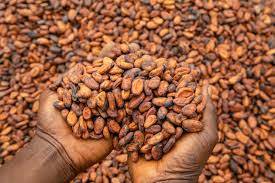Government Increases Cocoa Producer Price by 100 Cedis: A Boost for Farmers
In a move aimed at enhancing the livelihoods of cocoa farmers, the government of Ghana has announced a significant increase in the producer price of cocoa by 100 cedis per bag. This decision, which has been met with a mixture of optimism and cautious hope, represents the government’s commitment to improving the welfare of cocoa farmers, who are often grappling with economic challenges such as inflation, fluctuating market prices, and the impacts of climate change.
The New Price and Its Impact
The increase in the cocoa producer price means that farmers will now receive a higher return for the cocoa beans they sell to the Ghana Cocoa Board (COCOBOD). The government’s decision comes as part of its broader efforts to support the agricultural sector and ensure that farmers earn a fair price for their produce. The new rate will see the price rise from 800 cedis per bag to 900 cedis per bag of cocoa beans, effective from the upcoming cocoa season.
For farmers, this price boost is a significant development. Cocoa farming is the backbone of many rural economies in Ghana, providing a source of livelihood for over 800,000 farmers. However, in recent years, the sector has been under strain due to lower international cocoa prices, rising input costs, and the challenge of maintaining productivity amidst adverse weather conditions. By increasing the price paid to farmers, the government is hoping to create an environment where farmers feel more motivated to continue cultivating cocoa and improving the quality of their harvests.
The Economic Context
This move comes at a time when the Ghanaian economy has been facing challenges, including high inflation, currency depreciation, and rising cost of living. For many rural farmers, especially those in cocoa-producing regions like the Western, Ashanti, and Eastern regions, the price hike is seen as a lifeline. It is expected to alleviate some of the financial pressures they face and potentially lead to improved living standards.
Additionally, the increase in the producer price is seen as a means of addressing the long-standing issue of poverty among cocoa farmers. Although Ghana is one of the world’s largest cocoa producers, many farmers still live below the poverty line due to the low prices they receive for their crops. With the new price increment, there is hope that farmers will have more disposable income to reinvest in their farms, improve their families’ quality of life, and contribute to the local economy.
Government’s Strategic Intent
The government move also aligns with its broader cocoa industry strategy, which includes improving the overall quality of cocoa beans and increasing local processing to add value to the raw product. By ensuring a higher and more stable income for cocoa farmers, the government hopes to attract more people into the industry, reversing the decline in cocoa production due to the aging farmer population and the shift towards other, more lucrative crops.
Furthermore, the government has emphasized that the price increase will also serve as a signal to the global market that Ghana is committed to ensuring fair compensation for its farmers. This could have long-term benefits for the country’s cocoa exports and its relationship with international buyers.
Challenges Ahead
Despite the positive outlook, there are still challenges to be faced. The increased price, while beneficial to farmers, may lead to higher production costs, especially if farmers need to purchase more inputs, such as fertilizers and pesticides, to maintain higher yields. Additionally, the government will need to ensure that the increased price does not lead to inefficiencies in the cocoa value chain, and that the price hike translates into tangible improvements in the lives of farmers rather than being absorbed by intermediaries.
Moreover, global cocoa prices remain volatile, and the government must balance domestic needs with international market demands to maintain the stability of the industry.
Conclusion
The government’s decision to raise the cocoa producer price by 100 cedis is a step in the right direction, signaling a commitment to supporting cocoa farmers and the broader agricultural sector. While challenges remain, this price hike has the potential to provide much-needed financial relief to farmers, improve the viability of cocoa farming, and contribute to the overall growth of the Ghanaian economy. As the cocoa season progresses, it will be essential to monitor how effectively the government’s policies translate into sustained improvements for those at the heart of the cocoa industry: the farmers.



